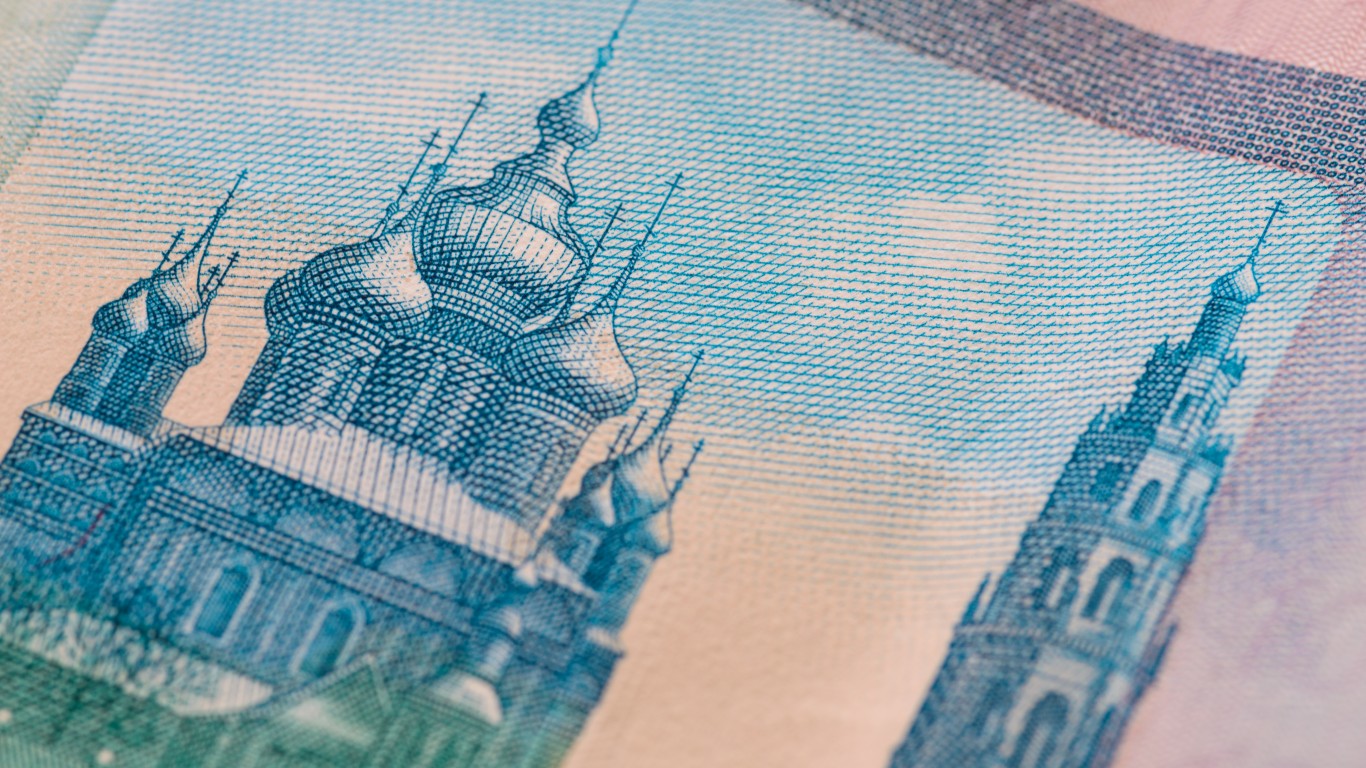

Ukraine and Russian negotiators have reportedly made progress in settlement talks that could end Putin’s war. The Financial Times reported Wednesday morning that Russian Foreign Minister Sergei Lavrov said that “‘absolutely specific wordings’ were ‘close to being agreed'” between the two sides. The agreement includes “security guarantees for Moscow and neutrality for Kyiv.”
[in-text-ad]
In its report on the settlement talks, CNBC cites Lavrov’s comments in a televised interview for Russian television:
In the talks between Russia and Ukraine, there is some hope of reaching a compromise. … The neutral status of Ukraine is now being seriously discussed in the negotiations in conjunction with other security issues. There are already specific formulations that are close to being agreed upon.
Lavrov then added that the Russian invasion (which Putin and other Russian leaders insist on calling a special military operation) was “not so much about Ukraine, but about the world order“: “The United States under Biden subjugated Europe, and the current crisis is an epochal moment in defining the world order.”
Ukraine President Volodymyr Zelensky said in a radio broadcast that the negotiations were beginning to “sound more realistic”:
All wars end in agreements . . . As I am told, the positions in the negotiations sound more realistic. However, time is still needed for the decisions to be in Ukraine’s interests. Our heroes, our defenders give us this time defending Ukraine everywhere.
At 9:00 a.m. ET, Zelensky will deliver a virtual address to the U.S. Congress. Senate Majority Leader Chuck Schumer and House Speaker Nancy Pelosi said in a letter to Senators and Representatives that Congress is committed “to supporting Ukraine as they face Putin’s cruel and diabolical aggression, and to passing legislation to cripple and isolate the Russian economy as well as deliver humanitarian, security and economic assistance to Ukraine.”
Russia would be in default on its sovereign debt if it pays the coupon on its U.S. dollar-denominated Eurobond debt in rubles when the 30-day grace period expires on April 2, according to a commentary by Fitch Ratings. On March 8, Fitch downgraded Russia’s sovereign debt from B to C, signifying that a default was imminent based on Russian President Vladimir Putin’s decree of March 5 establishing “a differential treatment of external debt payments to creditors in countries that had joined sanctions against Russia, including their payment in roubles.”
U.S. premarket trading was solidly in the green Wednesday morning as hopes rise for a settlement between Russia and Ukraine. Perhaps an even more upbeat note, however, was sounded by China’s central bank governor, Yi Gang, essentially guaranteed stability in capital markets, support for overseas stock listings, a fix for the floundering real estate market and an end to the persecution of the country’s high-tech giants. J.P. Morgan downgraded 28 Chinese tech stocks on Tuesday, calling them “uninvestable” for the next six to 12 months.
And where does China fit in? In an Opinion article at Bloomberg News, Shuli Ren writes:
The latest selloffs are raising questions about Beijing’s market objectives. Does it want to be associated with Russia’s invasion of Ukraine and be seen as incompatible with ESG investing? Does the government really want to close China Inc.’s access to the deep pool of global capital, as well as to the U.S. and European Union, which together account for about 35% of its exports?
The inconvenient truth is that Beijing doesn’t care how much money global investors have lost. It does not care about short-term volatility. It does, however, have its eyes on the big prize of securing its real economy. And it trusts that its domestic asset management industry will keep the Hong Kong market afloat.
…
So here’s a thought for ESG-minded global investors. Selling their stakes and whining about China becoming “uninvestable” won’t change Beijing’s mind. But convincing foreign companies to stop buying Chinese goods and services might. Those moves would hurt the real economy. Perhaps some portfolio reshuffling is in order.
Take This Retirement Quiz To Get Matched With A Financial Advisor (Sponsored)
Take the quiz below to get matched with a financial advisor today.
Each advisor has been vetted by SmartAsset and is held to a fiduciary standard to act in your best interests.
Here’s how it works:
1. Answer SmartAsset advisor match quiz
2. Review your pre-screened matches at your leisure. Check out the advisors’ profiles.
3. Speak with advisors at no cost to you. Have an introductory call on the phone or introduction in person and choose whom to work with in the future
Take the retirement quiz right here.
Thank you for reading! Have some feedback for us?
Contact the 24/7 Wall St. editorial team.
 24/7 Wall St.
24/7 Wall St.


